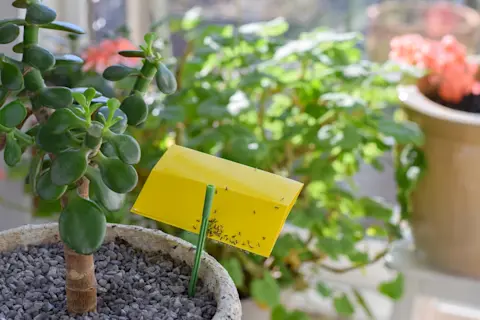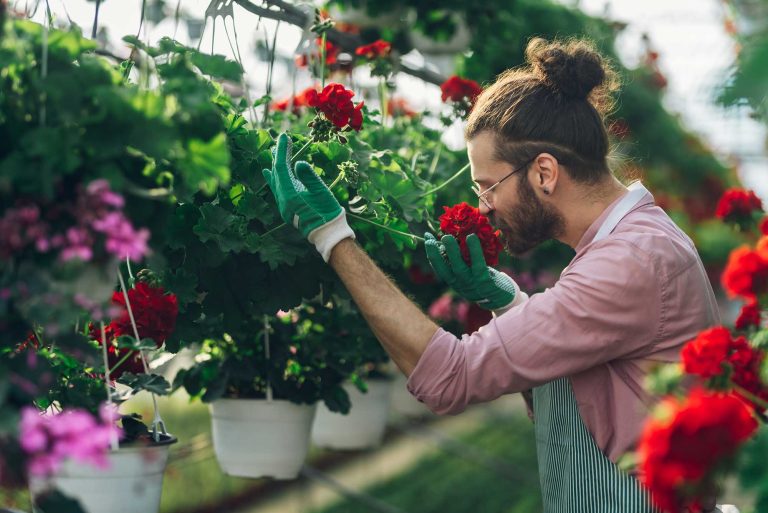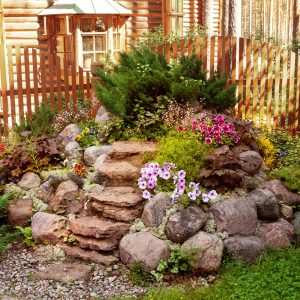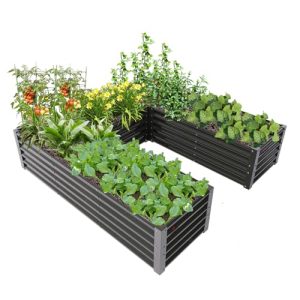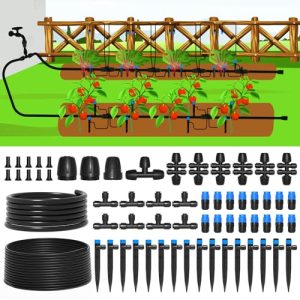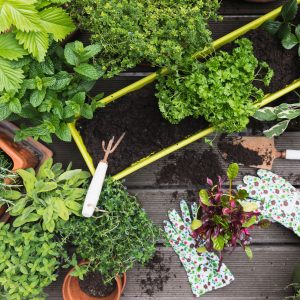Are pesky gnats invading your indoor garden, making it hard to enjoy your green oasis? These tiny insects can be a real nuisance, buzzing around your plants and creating an unwelcome distraction.
But don’t worry, you’re not alone in this battle. Many indoor gardeners face the challenge of getting rid of gnats. The good news is, you can reclaim your space and keep your plants healthy with the right strategies. Imagine the satisfaction of seeing your garden free from these annoying invaders.
You’ll discover simple, effective ways to banish gnats for good. Say goodbye to frustration and hello to a thriving indoor garden. Stick around to learn how to turn your gardening woes into wins!

Credit: www.amazon.com
Identify Common Gnats
Identifying common gnats is the first step to control them. These tiny insects can cause big problems in your indoor garden. Knowing their types helps in choosing the right solution. Let’s explore the various kinds of gnats you might encounter.
Types Of Indoor Gnats
Indoor gnats usually belong to a few common types. Fungus gnats are the most prevalent. They thrive in moist soil and organic matter. You might also find fruit flies buzzing around. They are attracted to overripe fruits and vegetables. Drain flies are another type. They breed in damp environments like sinks or drains.
Signs Of Infestation
Spotting gnats early prevents severe infestations. Look for adult gnats hovering near plants or food. Check for larvae in the soil. They are small and white, often near the plant roots. Sticky traps can help monitor gnat activity. If the traps fill quickly, you might have an infestation. Keeping an eye on these signs can save your plants.
Preventive Measures
Eliminate gnats in your indoor garden by keeping the soil dry. Use yellow sticky traps to catch adults. Regularly clean pots and remove decaying plant matter to prevent breeding.
Preventing gnats in your indoor garden is crucial for plant health. Taking simple preventive steps can help keep these pesky pests at bay. Focus on proper watering and maintaining cleanliness. By doing so, you can create an environment less inviting to gnats.Proper Watering Techniques
Water your plants carefully to avoid overwatering. Gnats thrive in moist soil. Ensure pots have good drainage. Use trays to catch excess water. Allow soil to dry between waterings. Check moisture levels regularly. Use a moisture meter for accuracy. Overwatering can lead to gnat infestations.Maintaining Cleanliness
Keep your indoor garden tidy and clean. Remove dead leaves promptly. Dispose of fallen debris regularly. Clean pots and trays frequently. Use clean tools when gardening. Wipe surfaces around plants. Keeping a clean area reduces gnat attraction. Avoid leaving plant material lying around.Natural Remedies
Natural remedies offer effective ways to eliminate gnats in your indoor garden. These methods are safe and environmentally friendly. You can tackle the problem without harmful chemicals. Let’s explore some simple solutions.
Using Vinegar Traps
Vinegar traps are easy to make and set up. Gnats are attracted to the smell of vinegar. Use apple cider vinegar for best results. Pour a small amount into a bowl. Cover the bowl with plastic wrap. Poke tiny holes in the plastic. Gnats will enter and become trapped inside.
This method is simple and cost-effective. You can place several traps around your garden. It helps reduce the gnat population quickly.
Essential Oils Application
Essential oils repel gnats effectively. They are natural and safe for plants. Lavender and peppermint oils work well. Mix a few drops with water. Use a spray bottle for easy application. Spray the solution on plant leaves and soil.
The scent drives gnats away. Regular use keeps them from returning. Essential oils also add a pleasant fragrance to your garden. This method is gentle on plants and helps maintain a healthy environment.

Credit: www.youtube.com
Chemical Solutions
Eliminate gnats from your indoor garden using safe chemical solutions. Apply insecticidal soap or neem oil directly to plants. Ensure thorough coverage to target gnats effectively without harming your plants.
Chemical solutions can be a powerful ally in your fight against indoor gnats, providing an effective way to target these pesky insects without much fuss. While natural remedies are often preferred, sometimes the infestation reaches a point where stronger measures are necessary. Using chemical solutions can help you regain control over your indoor garden and enjoy a gnat-free environment.Insecticidal Soaps
Insecticidal soaps are a great choice for dealing with gnats in your indoor garden. They work by breaking down the protective outer layer of the insects, causing them to dehydrate and die. These soaps are generally safe for your plants and can be applied directly to the affected areas. Here’s how you can use them: – Mix the soap with water according to the instructions on the label. – Spray it generously on the soil and leaves where gnats are present. – Repeat the process every few days until you notice a decline in the gnat population. Remember to test the soap on a small section of the plant first to ensure there’s no adverse reaction.Commercial Sprays
Commercial sprays are another effective chemical solution, specifically designed to tackle gnat infestations. These sprays often contain pyrethrins or other active ingredients that target gnats directly. When choosing a commercial spray: – Look for products labeled for indoor use to ensure safety. – Follow the application instructions carefully to avoid harming your plants. – Consider sprays with a low toxicity level for a safer option around pets and children. Have you ever wondered if you’re missing out on an easier solution? Sometimes, investing in a quality commercial spray can save you time and effort in the long run. Chemical solutions can provide a quick fix, but always ensure they are used responsibly and in conjunction with good gardening practices. What other methods have you found effective in battling indoor garden pests? Share your tips and experiences in the comments!Environmental Adjustments
Eliminate gnats in indoor gardens by adjusting environmental factors. Ensure proper drainage and avoid overwatering plants. Use natural repellents like vinegar or essential oils for effective control.
Managing gnats in your indoor garden can be quite a challenge. These tiny pests are often attracted to moist environments and can quickly multiply if conditions are right. Making simple environmental adjustments can drastically reduce their presence. By improving air circulation and regulating humidity levels, you can create a less inviting atmosphere for gnats and keep your plants healthy.Improving Air Circulation
Enhancing air circulation is a straightforward yet effective strategy to deter gnats. Consider using fans to keep the air moving around your plants. This not only makes it harder for gnats to settle but also promotes healthier plant growth. Open windows or vents regularly to refresh the air, especially if you notice a musty smell or stagnant air. A friend once told me that they added a small oscillating fan near their indoor herbs, and within days, the gnat problem started to diminish. It was a simple yet powerful solution.Regulating Humidity Levels
Gnats thrive in humid environments. Investing in a dehumidifier can help keep humidity levels in check, making your indoor garden less attractive to these pests. Monitor the moisture levels of your plant’s soil. Overwatering is a common mistake that increases humidity and invites gnats. Use a moisture meter to ensure you’re providing just the right amount of water. Ask yourself, is it time to adjust your watering schedule? Sometimes less is more when it comes to maintaining your garden.Long-term Control Strategies
Implementing long-term control strategies can help eliminate gnats in your indoor garden. Regularly remove decaying plant material and reduce excess moisture. Use sticky traps to capture adult gnats and introduce beneficial nematodes to target larvae.
Long-term control strategies for gnats require consistent effort. These strategies help maintain a healthy indoor garden. Gnats thrive in moist environments, so it’s key to address this. Regular monitoring and maintenance can keep gnats at bay. Integrated pest management offers a holistic approach.Monitoring And Maintenance
Regular checks of your garden are essential. Look for any signs of gnats. Check soil moisture levels. Dry soil lessens gnat attraction. Remove any debris or dead plants. Debris provides breeding grounds for gnats. Use sticky traps to catch adult gnats. Record gnat sightings to track infestations. Consistent monitoring helps spot issues early.Integrating Pest Management
Integrated pest management combines different methods. It uses biological, cultural, and mechanical controls. Introduce natural predators like nematodes. They target gnat larvae in the soil. Modify watering practices to avoid over-watering. This reduces moisture where gnats thrive. Employ soil barriers like sand or perlite. These hinder gnat access to the soil. Consider using neem oil as a natural insecticide. It disrupts gnat life cycles. Implementing these strategies enhances garden health and reduces gnat populations.
Credit: www.youtube.com
Frequently Asked Questions
How Do Gnats Affect Indoor Gardens?
Gnats can damage indoor gardens by feeding on plant roots and soil. They thrive in damp conditions, hindering plant growth. Their presence can lead to wilting and poor plant health. Regularly check soil moisture levels and ensure proper ventilation to prevent gnat infestations.
What Attracts Gnats To Indoor Plants?
Gnats are attracted to moist soil and decaying organic matter. Overwatering and poor drainage create ideal conditions for them. They also seek out decomposing leaves or plant debris. Use well-draining soil and limit watering to deter gnats in your indoor garden.
How Can I Prevent Gnats In My Home?
Prevent gnats by maintaining dry soil and reducing excess moisture. Use sticky traps to capture adult gnats. Regularly clean and remove any plant debris. Ensure good air circulation and avoid overwatering to keep gnats away from your indoor garden.
Are Natural Remedies Effective Against Gnats?
Yes, natural remedies like neem oil and vinegar can help eliminate gnats. Neem oil disrupts their life cycle, while vinegar attracts and traps them. Use these methods regularly for best results. Combine natural remedies with good gardening practices to effectively control gnats.
Conclusion
Creating a gnat-free indoor garden is simpler than you think. Regular cleaning helps prevent gnat infestations. Use natural solutions like vinegar traps for quick results. Sticky traps are useful for monitoring gnat numbers. Adjust watering habits to avoid excess moisture.
Consider adding beneficial insects to your garden. They control pests naturally. Keep an eye on plant health for early signs of gnats. Healthy plants resist infestations better. Stay consistent with these practices. Your garden will thrive without gnats. Enjoy your peaceful, pest-free oasis indoors.
Happy gardening!
